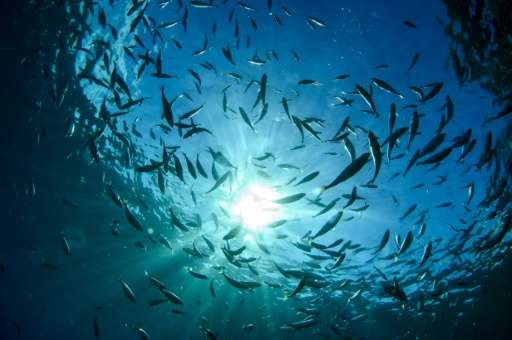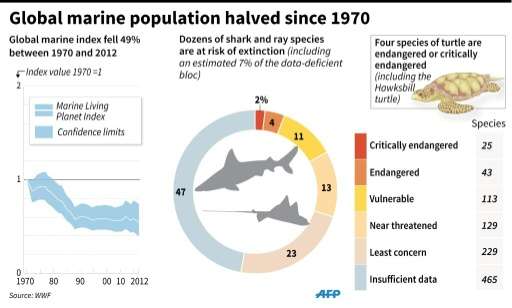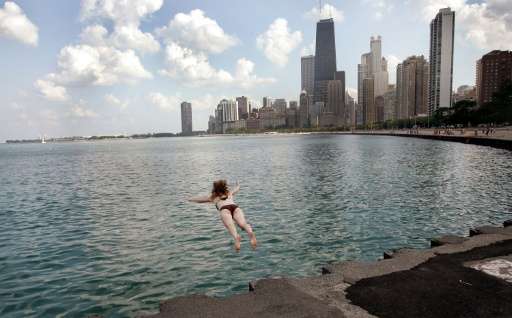New marine parks named as Chile hosts oceans summit

The United States and partner countries were to announce new marine reserves on Monday at the start of a major conference in Chile on protecting the world's oceans.
Chile is hosting the Our Ocean conference in the picturesque Pacific port city of Valparaiso, a second annual get-together for states to pledge support for the marine ecosystem.
President Barack Obama will address the meeting in a video message to announce two new "National Marine Sanctuaries" in the United States, the White House said.
These are expected to be just part of a series of announcements made by the hosts and around 20 other participating countries.
An 875-square-mile (2,300 square kilometers) area of Lake Michigan in Wisconsin that holds dozens of historic wrecks will be protected, US officials said.
And Mallows Bay on the Potomac River in Maryland, a tidal wetland and a graveyard for scuttled warships since the Revolutionary War, will also become a reserve.
Several countries and foundations are expected to pledge funds and propose initiatives to fight pollution, overfishing and the acidification of the ocean by carbon emissions.
Last year's conference in Washington saw $800 million pledged to support various environmental initiatives and this year's host Chile hopes for similar success.
But perhaps the most globally significant initiative will be a plan to regulate the world fish trade.

According to a 2014 study by the UN Food and Agriculture Organization, 29 percent of the world's fish stocks which have been adequately studied are overexploited.
Regulation and quota systems vary wildly around the world and some countries -– particularly in Southeast Asia -– have been accused of allowing large-scale unregulated fishing.
Targeting 'hot spots'
Part of the US plan, dubbed Sea Scout, will seek to unite governments around the world in the fight to identify illegal fishing vessels and fleets and bar them from landing catches.
Under the plan, experts will identify regional fishing sea "hot spots" and target them for enforcement by member states' fisheries protection teams, the White House said.
The US National Oceanographic and Atmospheric Administration will track suspicious fishing boats by satellite and alert authorities in Indonesia, the Philippines and other countries.
Meanwhile, Washington will make its own fishing industry and importers serving its huge market –- Americans eat 4.6 billion pounds of seafood per year -– track products from their origin.

Officials traveling with US Secretary of State John Kerry to the Valparaiso conference said rules coming into place next year will track species representing 80 percent of US seafood.
And the White House said it would work with its international partners to try to embed the seafood tracking system into the Trans-Pacific Partnership trade deal it is currently negotiating.
In addition to Obama's video message and a speech by Kerry, Our Ocean will be addressed by host President Michelle Bachelet and Foreign Minister Heraldo Munoz.
The conference will also take on the problem of pollution from the land—such as agricultural pesticide and fertilizer run-off and waste plastics—hurting the sea.
And ministers and experts will address the acidification of the oceans, which are absorbing carbon from the atmosphere at a speed which threatens vulnerable ecosystems.
"Since the beginning of the Industrial Revolution the ocean has become approximately 30 percent more acidic, a trend that is projected to continue," a State Department factsheet said.
"This rapid rate of carbon dioxide uptake means that the chemistry of the ocean is changing 10 times faster than at any other time in the past 50 million years."
© 2015 AFP




















